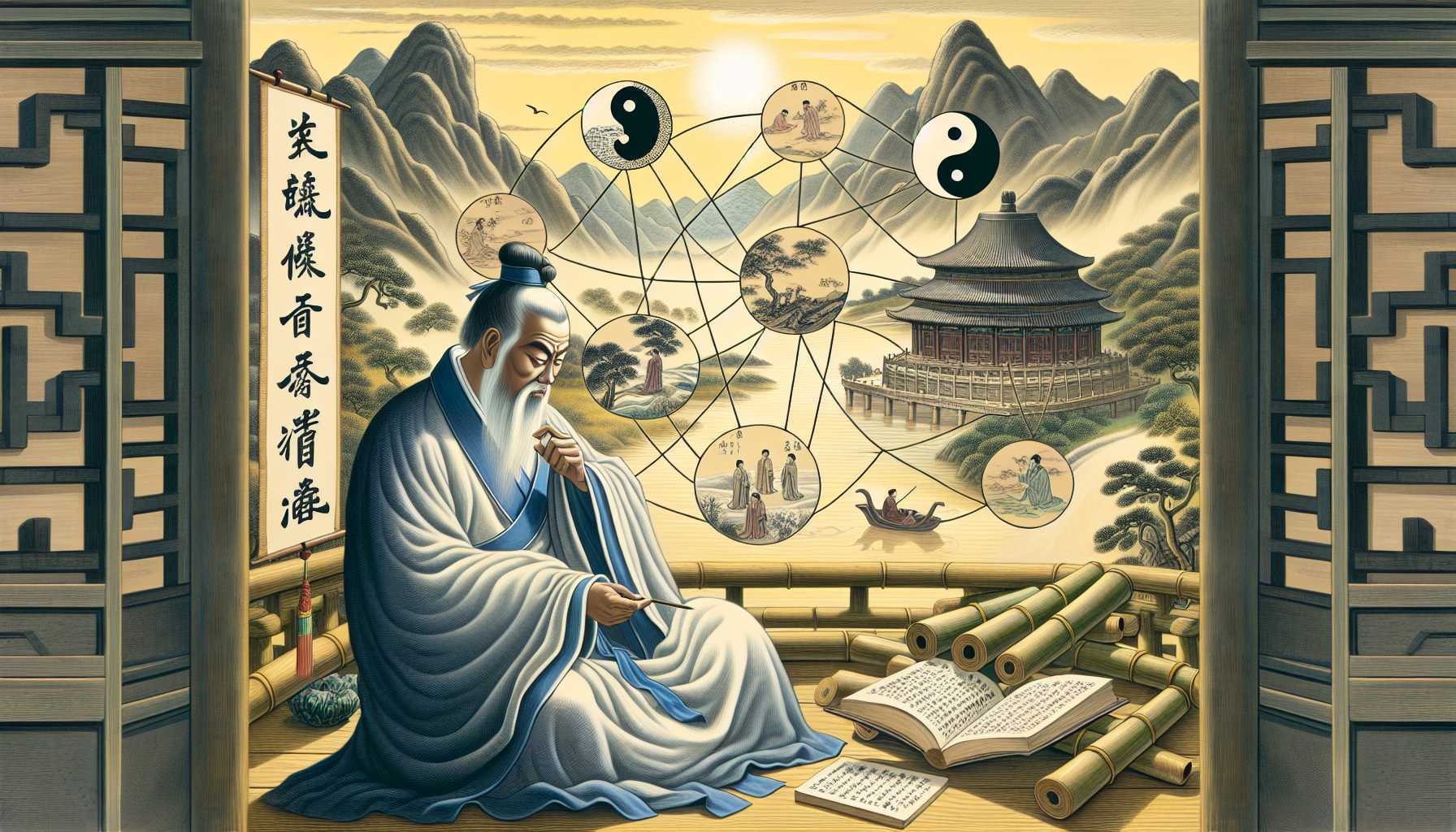
Confucius Life Teachings and Impact on Philosophy
The article on Confucius from the Internet Encyclopedia of Philosophy outlines the life, teachings, and impact of this influential Chinese philosopher.
Intānetto tetsugaku hyakka jiten no Kōshi ni kansuru kiji wa, kono eikyōryoku no aru Chūgoku no tetsugakusha no shōgai, oshie, eikyō o gaisetsu shiteimasu.
インターネット哲学百科事典の孔子に関する記事は、この影響力のある中国の哲学者の生涯、教え、影響を概説しています。
Born in 551 BCE in the state of Lu, Confucius developed a moral and philosophical system that emphasized ethics, politics, and social harmony.
Kōshi wa kigenzen 551-nen ni Ro no kuni de umare, rinri, seiji, shakaiteki chōwa o kyōchō shita dōtoku-teki katsu tetsugaku-teki na taikei o hatten sasemashita.
孔子は紀元前551年に魯の国で生まれ、倫理、政治、社会的調和を強調した道徳的かつ哲学的な体系を発展させました。
Central to his teachings are the concepts of Ren (benevolence), Li (ritual and proper conduct), and the importance of filial piety.
Kare no oshie no chūshin ni wa Jin (jihi), Rei (gishiki to tekisetsu na kōdō), soshite shinkōkō no jūyō-sei ga arimasu.
彼の教えの中心には仁(慈悲)、礼(儀式と適切な行動)、そして親孝行の重要性があります。
He promoted the idea that moral integrity and virtuous leadership would cultivate a just society, advocating for education as a means of self-improvement and societal benefit.
Kare wa dōtoku-teki na seijitsu sa to kōketsu na shidō ga kōsei na shakai o hagukumu to iu kangae o sokushin shi, jiko kaizen to shakaiteki rieki no shudan to shite kyōiku o yōgo shimashita.
彼は道徳的な誠実さと高潔な指導が公正な社会を育むという考えを促進し、自己改善と社会的利益の手段として教育を擁護しました。
Confucius's ideas were documented by his followers in texts such as the 'Analects,' which became foundational to Chinese thought and culture.
Kōshi no shisō wa, deshi-tachi ni yotte 'Rongo' nado no bunken ni kirokusare, Chūgoku no shisō ya bunka no kiso to narimashita.
孔子の思想は、弟子たちによって「論語」などの文献に記録され、中国の思想や文化の基礎となりました。
Despite not gaining immediate prominence during his lifetime, Confucianism eventually rose to become a dominant ideology, influencing various aspects of Chinese governance, social structure, and personal behavior.
Seizen ni wa sugu ni chūmoku o atsumenakatta ga, saishū-teki ni wa Jukyō ga hiromari, Chūgoku no seiji, shakai kōzō, kojin no kōdō ni samazama na men de eikyō o ataeru shihai-teki na ideorogī to narimashita.
生前にはすぐに注目を集めなかったが、最終的には儒教が広まり、中国の政治、社会構造、個人の行動にさまざまな面で影響を与える支配的なイデオロギーとなりました。
The article also discusses the enduring legacy of Confucian thought, noting its relevance in contemporary discussions about ethics and governance, as well as its influence beyond China, impacting East Asian cultures and philosophies.
Kono kiji de wa, Jukyō shisō no jijokuteki na isan ni tsuite mo ronjirare, rinri to tōchi ni kansuru gendai no giron ni okeru sono kanren-sei ya, Chūgoku o koeta eikyō, soshite Higashi Ajia no bunka to tetsugaku e no eikyō ni tsuite noberareteimasu.
この記事では、儒教思想の持続的な遺産についても論じられ、倫理と統治に関する現代の議論におけるその関連性や、中国を超えた影響、そして東アジアの文化と哲学への影響について述べられています。
Overall, the article highlights how Confucius's teachings established a framework for moral conduct and social responsibility that shaped not only Chinese civilization but also broader philosophical inquiries into ethics and human relations throughout history.
Zentai to shite, kono kiji wa Kōshi no oshie ga dōtoku-teki kōdō to shakaiteki sekinin no wakugumi o kakuritsu shi, Chūgoku no bunmei dake de naku, rekishi o tsūjite rinri ya ningen kankei ni kansuru kōhan na tetsugaku-teki tankyū ni mo eikyō o ataeta koto o kyōchō shiteimasu.
全体として、この記事は孔子の教えが道徳的行動と社会的責任の枠組みを確立し、中国の文明だけでなく、歴史を通じて倫理や人間関係に関する広範な哲学的探求にも影響を与えたことを強調しています。
Based on this article
